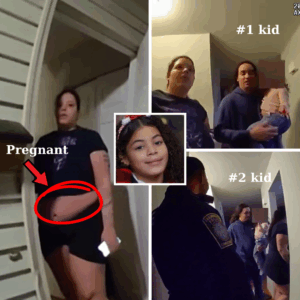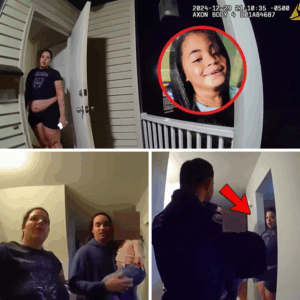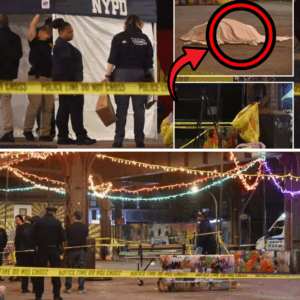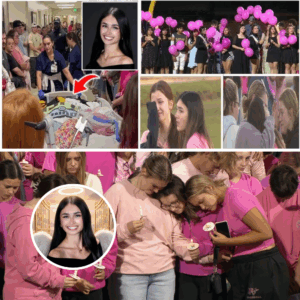The British royal family has long captivated the world with its traditions, titles, and carefully curated public image. However, a surprising revelation from the birth certificate of Prince Archie Harrison Mountbatten-Windsor, the first child of Prince Harry and Meghan Markle, has stunned royal enthusiasts and sparked widespread discussion. The document, made public shortly after Archie’s birth on May 6, 2019, revealed that Prince Harry’s legal name is not “Harry” but “Henry Charles Albert David.” This disclosure, resurfacing in early 2025, has led to claims that the world was “deceived” about the Duke of Sussex’s true identity, despite the fact that his legal name has been documented in official records for decades. This article explores the significance of this revelation, the context of Archie’s birth certificate, and the public’s reaction, drawing from media reports, official statements, and social media discussions.
The Birth Certificate Revelation
Archie Harrison Mountbatten-Windsor was born at 5:26 a.m. on May 6, 2019, at Portland Hospital in London, the first child of Prince Harry, Duke of Sussex, and Meghan, Duchess of Sussex. Unlike previous royal births, which often featured immediate public photocalls, Archie’s arrival was announced with a framed notice at Buckingham Palace, and his birth certificate was released to the public on May 17, 2019, as reported by BBC News. The document listed Archie’s full name and confirmed his parents’ identities, with Meghan recorded as “Rachel Meghan Her Royal Highness The Duchess of Sussex” and her occupation as “Princess of the United Kingdom.” However, it was Harry’s name that caught the public’s attention: “His Royal Highness Henry Charles Albert David Duke of Sussex.”
The revelation that Harry’s legal name is Henry, not Harry, sparked a frenzy among royal watchers, with headlines like “Prince Harry’s ‘Real Name’ Exposed” appearing on outlets such as Tyla and Express.co.uk. Social media posts on X amplified the shock, with users exclaiming, “PRINCE HARRY’S REAL NAME IS HENRY?? wtf” and “PRINCE HARRY’S REAL NAME IS H E N R Y?” These reactions, as noted in Mirror Online, suggested that many fans felt “deceived” by the long-standing use of “Harry” in public contexts, despite the nickname being a common diminutive for Henry in British tradition, as evidenced by historical figures like King Henry VIII, who was also called Harry by his peers, per Metro.
A Tradition of Nicknames in the Royal Family
The use of “Harry” as a nickname for Henry is deeply rooted in English tradition, and Prince Harry himself has acknowledged this with humor. At the WellChild Awards in 2019, he told a young boy named Henry, “My name is Henry as well, but everyone calls me Harry. I have no idea why,” as reported by Entertainment Tonight. This lighthearted comment underscores that Harry’s nickname was not a deliberate deception but a cultural norm. The royal family frequently uses informal names in public to foster relatability—Prince William is often called “Wills,” and the late Queen Elizabeth II was affectionately known as “Lilibet” in private, a name later given to Harry and Meghan’s daughter.
Despite this tradition, the resurfacing of Archie’s birth certificate in February 2025, coinciding with Harry’s preparations for the Invictus Games in Vancouver, reignited public fascination. The document’s listing of Harry as “Henry Charles Albert David” prompted speculation about why the royal family allowed the nickname to dominate public perception. Some media outlets, like Hindustan Times, suggested that the formal naming on official documents reflects the monarchy’s adherence to protocol, while the use of “Harry” aligns with the Sussexes’ desire to present a more approachable image, especially after stepping back from royal duties in 2020.
Contextualizing Archie’s Birth Certificate
Archie’s birth certificate revealed other intriguing details that fueled public discourse. Notably, Harry’s title omitted the word “Prince,” listing him as “His Royal Highness Henry Charles Albert David Duke of Sussex.” This omission puzzled royal fans, especially since Prince William’s title on his children’s birth certificates includes “Prince,” as noted by Tyla and Express.co.uk. For example, Prince Louis’s birth certificate lists William as “His Royal Highness Prince William Arthur Philip Louis Duke of Cambridge.” Some speculated that this difference reflected Harry and Meghan’s intention to distance themselves from traditional royal titles, a decision that predated their 2020 departure from senior royal roles. However, others, including a Reddit thread on r/SaintMeghanMarkle, argued that the omission was a clerical oversight, later corrected to align with standard royal protocol.
Meghan’s name on the certificate also drew attention, listed as “Rachel Meghan Her Royal Highness The Duchess of Sussex.” This use of her birth name, Rachel, rather than her stage name, Meghan, mirrored the naming conventions on other royal birth certificates, such as those of Prince William’s children, where Kate is listed as “Catherine Elizabeth.” The document also confirmed that Archie was born at Portland Hospital, debunking rumors of a home birth, as reported by Tyla. These details, while procedural, underscored the public’s fascination with the Sussexes’ choices, which often challenge royal norms.
Public Reaction and Media Frenzy
The revelation of Harry’s legal name as Henry sparked a mix of amusement, surprise, and conspiracy theories. Social media platforms, particularly X, buzzed with reactions, with some users humorously claiming that “the world has been lied to” about Harry’s identity. Others viewed it as a non-issue, pointing out that nicknames are common among royals and that Harry’s legal name was never a secret, appearing on his marriage certificate and other official documents. A post on X, cited by Mirror Online, captured the sentiment: “Like other members of the Royal Family, he doesn’t use a fixed surname and has used ‘Wales,’ ‘Sussex,’ and ‘Mountbatten-Windsor’ at different times in his life.”
Media outlets capitalized on the story, with headlines emphasizing the “shock” of Harry’s “real name.” Tyla reported on March 6, 2025, that the disclosure left fans feeling “their whole life has been a lie,” while People Magazine noted Harry’s own bemusement about his name, highlighting his WellChild Awards comment. The story gained traction alongside other royal naming revelations, such as Meghan’s confirmation in August 2025 that the Sussex family uses “Sussex” as their shared surname, a title bestowed by Queen Elizabeth II on their 2018 wedding day, as reported by People Magazine.
Critics on platforms like Reddit’s r/SaintMeghanMarkle suggested that the Sussexes’ unconventional approach to Archie’s birth announcement—lacking the traditional hospital photocall and featuring ambiguous wording—fueled speculation about their intentions. Some posts even speculated about deeper conspiracies, such as the use of a surrogate, though these claims lack evidence and were dismissed by mainstream sources like Newsweek. The fascination with Harry’s name, while seemingly trivial, reflects the public’s enduring obsession with the Sussexes’ divergence from royal tradition.
Implications for the Sussex Brand
The renewed focus on Archie’s birth certificate and Harry’s legal name comes at a time when the Sussexes are redefining their public identity. After stepping back from royal duties in 2020, Harry and Meghan have built a brand centered on philanthropy and media ventures, including their Netflix docuseries and the Archewell Foundation. Meghan’s August 2025 interview with People Magazine emphasized the significance of the “Sussex” surname, stating, “It’s our shared name as a family, and I hadn’t recognized how meaningful that would be to me until we had children.” This shift to a unified family identity contrasts with the traditional royal use of “Mountbatten-Windsor” for Archie and Lilibet’s birth certificates, as noted by People Magazine.
Harry’s legal name, while a minor detail, has been leveraged by media to highlight the couple’s complex relationship with royal protocol. Their decision to style Archie as “Master Archie Harrison Mountbatten-Windsor” at birth, rather than using Harry’s subsidiary title, Earl of Dumbarton, reflected their desire for a more private life for their son, as reported by Wikipedia. However, upon King Charles III’s accession in 2022, Archie and Lilibet became eligible for prince and princess titles, a change the Sussexes embraced, further complicating public perceptions of their naming choices.
A Royal Tradition Under Scrutiny
The revelation of Harry’s legal name underscores the monarchy’s intricate naming conventions, which balance formality with accessibility. While the public may have been surprised, royal historians point out that such nicknames are standard practice. King Charles III, listed as “His Royal Highness Prince Charles Philip Arthur George Prince of Wales” on his sons’ birth certificates, is another example, as noted by Hindustan Times. The use of “Harry” has made the Duke of Sussex more relatable, aligning with his and Meghan’s efforts to modernize their public image.
However, the narrative of “deception” persists in some circles, fueled by the Sussexes’ high-profile exit from royal life and their candid discussions of royal challenges, such as Meghan’s Oprah interview in 2021, where she addressed Archie’s title eligibility. The controversy over Harry’s name, while overstated, reflects broader tensions between the Sussexes’ desire for independence and the public’s expectations of royal transparency.
Conclusion
The revelation of Prince Harry’s legal name as Henry on Archie’s birth certificate, while not a secret, has captivated the public, sparking debates about royal naming conventions and perceptions of deception. Far from a deliberate ruse, the use of “Harry” reflects a cultural tradition of nicknames within the royal family, as seen with historical figures like Henry VIII. The resurfacing of this detail in 2025, amplified by media and social media, highlights the enduring fascination with the Sussexes and their navigation of royal and personal identities. As Harry and Meghan continue to carve out their legacy, Archie’s birth certificate serves as a reminder of the complex interplay between tradition, protocol, and public perception in the world of royalty.





